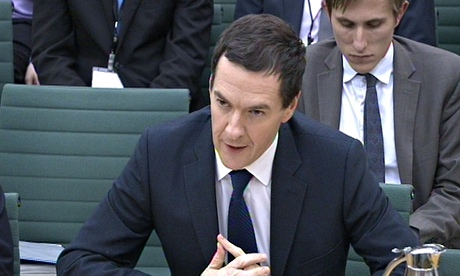
The more it dazzles on the day, the more worrisome it looks a week later. Somewhere between the 10p tax band and the pasty tax, this became the sage budget-watcher’s maxim. Attention always turns from the crowd-pleasers to the hidden nasties.
George Osborne’s autumn statement may be starting to look like another instance of the same syndrome. It isn’t quite. For one thing, it wasn’t strictly a budget. For another, it is not fair to accuse him of burying the grisliest news. Yes, there was the eye-catching distraction of a small stamp duty giveaway, which threw the suggestible media off the scent for a few hours, but the real story was hardly concealed. The Office for Budget Responsibility talked about rolling the state back to the 1930s that same afternoon, and indeed, in his tax-cutting conference speech two months before, David Cameron had prefigured the OBR numbers, by insisting that all further belt-tightening would come through expenditure cuts. Two sons of Thatcher, the PM and the chancellor may have reflected on the lessons of their youth and concluded that reducing taxes and public spending in parallel could deliver for them, just as it did for the Iron Lady.
Certainly, Mr Osborne brimmed with confidence as he insisted to the Treasury committee today that everything he had promised about the next parliament could happen as smoothly as the cuts he has already imposed. The latest Guardian/ICM poll, however, suggests the voters beg to differ. The Conservatives have sunk to their lowest standing since May 2013, a mere 28%, a worse score than John Major’s in 1997, and a prospective result only matched in the modern history of the main parties by Michael Foot in 1983. While there is no enthusiasm for Labour, which remains marooned on just a third of the poll, fears about where the Tories are taking the country are coming to the surface.
By a 20-point margin, Britain’s hunch is that the chancellor is going beyond the nasty but necessary, and freely choosing to go “too far”. That is the natural conclusion, since Mr Osborne is aiming not only for fiscal balance but for fiscal surplus and lower tax. A mere 16% of the electorate want cuts to do all the heavy lifting, with three voters in every four preferring the more balanced approach taken by governments of the past, where taxes do some of the work. They did so even under Margaret Thatcher herself, who cut tax allowances, where Mr Osborne has raised them at huge cost.
The unveiling of an eye-watering settlement for town halls was rescheduled today, as ministers scrambled to come up with some sort of replacement for backstop emergency welfare provision, which they had previously localised, and are now on the brink of axing entirely. More such rumbles will run through Whitehall, as vast general cuts are translated into specific proposals. Expect, too, more unsettling debates about the sort of society that we are becoming, like that which accompanied last week’s hunger report. Such are the consequences of going where Mrs Thatcher flinched to tread. Don’t assume that the voters will stay on board.

